At the Eighth Annual Celebration of Student Scholarship, students across disciplines presented their work in the MIX at Fenwick. Each project was at least partially funded by the Office of Student Scholarship, Creative Activities, and Research (OSCAR) in their pursuits.
“One of our goals with funding OSCAR projects is to make sure that students can do research, that it’s available and an option for everyone,” said Bethany Usher, associate provost for undergraduate research. “When you’re talking to people, and talking about the opportunities to be able to do this, talk to people about the fact that it is open to all of our students. Everyone has an opportunity.”
Alongside their peers, faculty, staff, and community members, students discussed the trials, findings, and next steps of their research.
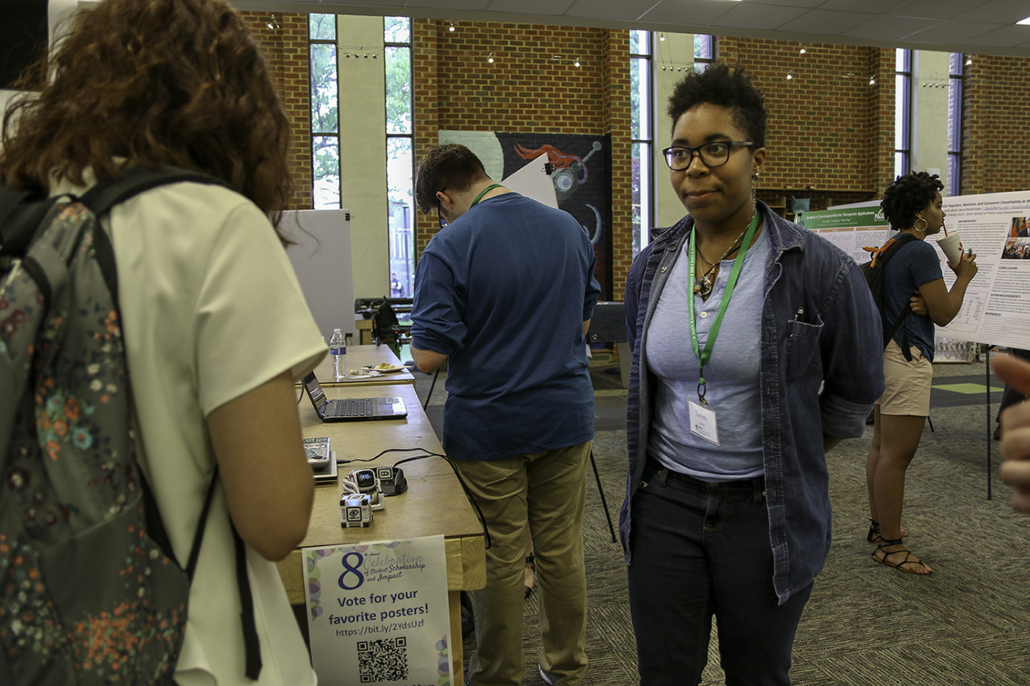
Levern Currie, junior majoring in psychology
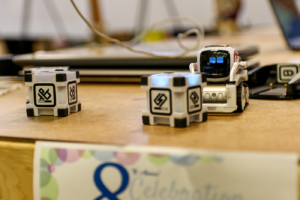 Currie’s research project focused on how people interacted with other people versus robots while playing a game. One round against a robot controlled by a person, and another while it used programmed actions. All the while looking to see how the interactions change depending on what’s controlling the robot.
Currie’s research project focused on how people interacted with other people versus robots while playing a game. One round against a robot controlled by a person, and another while it used programmed actions. All the while looking to see how the interactions change depending on what’s controlling the robot.
What OSCAR helped fund: the robot, better equipment, repairs when needed.
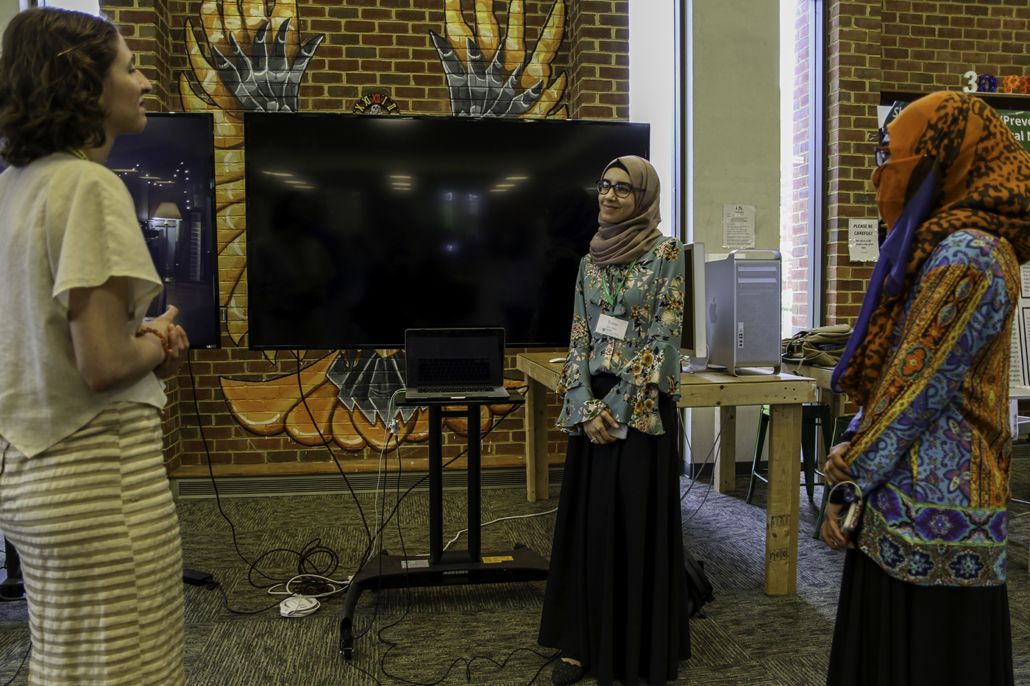
Esraa Abo Oun, senior majoring in film and video studies
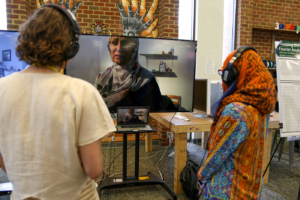 Oun directed a short film that follows a family living in Syria as conflict breaks out, giving the audience a glimpse of normal daily life interrupted by war.
Oun directed a short film that follows a family living in Syria as conflict breaks out, giving the audience a glimpse of normal daily life interrupted by war.
What OSCAR helped fund: “We are telling a story set in a different country, set in a war zone,” said Oun, “so we used a lot of the funding to help with production design, costumes, makeup, paying for actors. It helped to get all the resources to make this look as authentic as possible.”
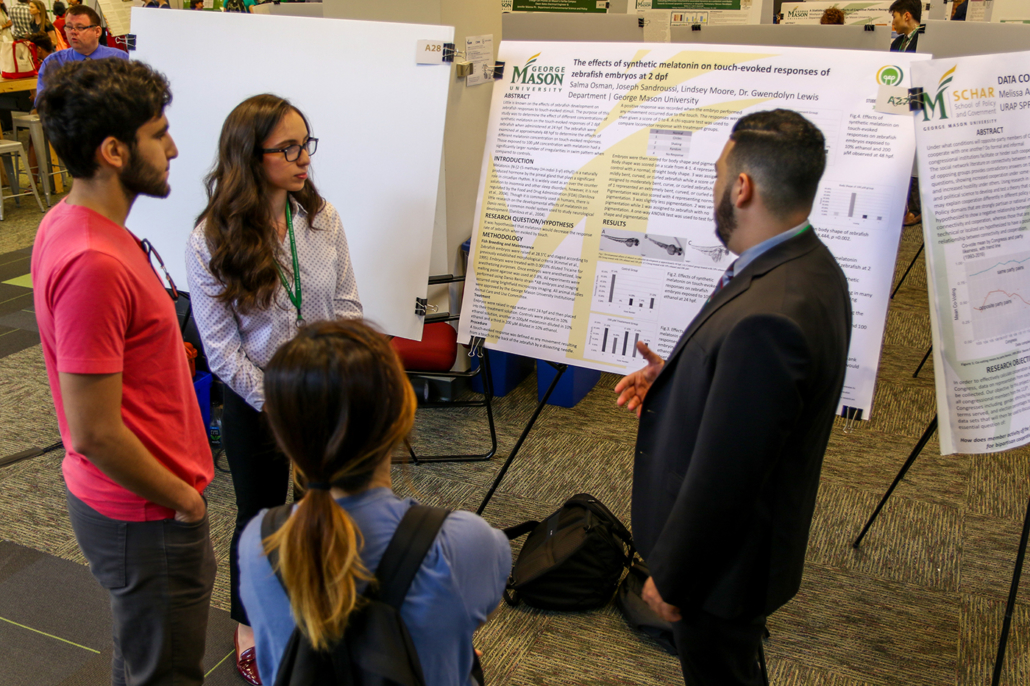
Salma Osman, junior majoring in neuroscience, and Joseph Sandroussi, senior majoring in neuroscience
Osman and Sandroussi tested the effects of synthetic melatonin on zebra fish embryos, looking at the changes in the nervous system and locomotive response.
What OSCAR helped fund: zebra fish embryos to test on. Next, they seek additional funding to build a larger sample size to try and get statistically significant results.
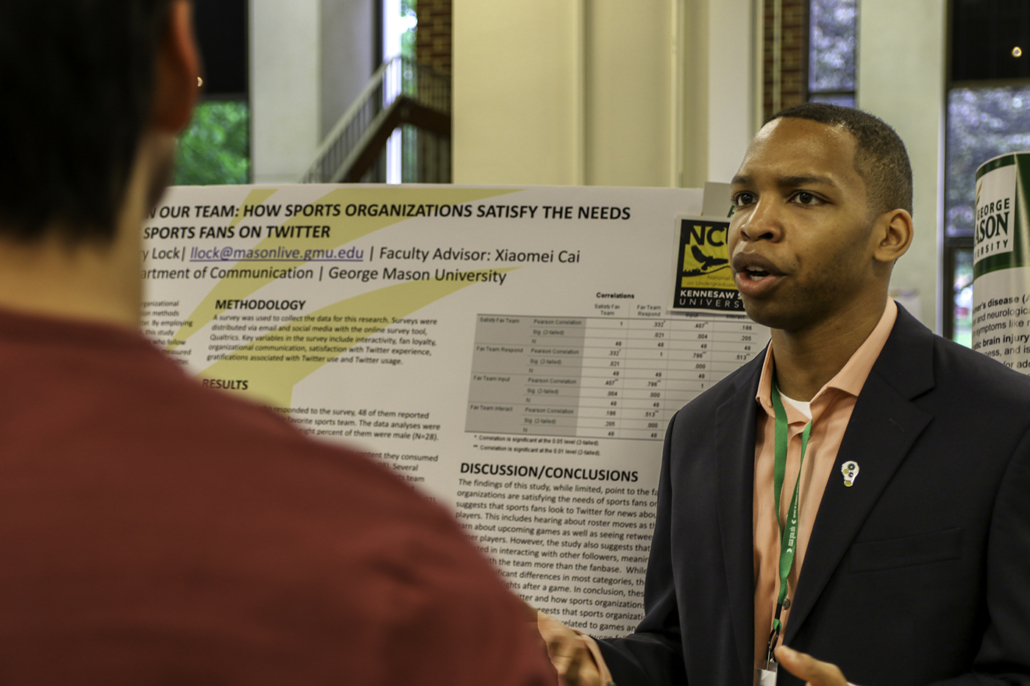
Brandon Lock, senior majoring in communication
“This project is about sports organizations, or sports teams, and how they can better satisfy their following on twitter,” said Lock. “I wanted to do a study on sports, but there’s a big gap in research and a lot of it doesn’t focus on fan behavior, so I wanted to fill that crucial gap.”
What OSCAR helped fund: a trip to the National Conference of Undergraduate Research (NCUR). “It was great to see other students doing undergraduate research, and see them go through the same experiences that I did. And also see other sport research going on,” said Lock.
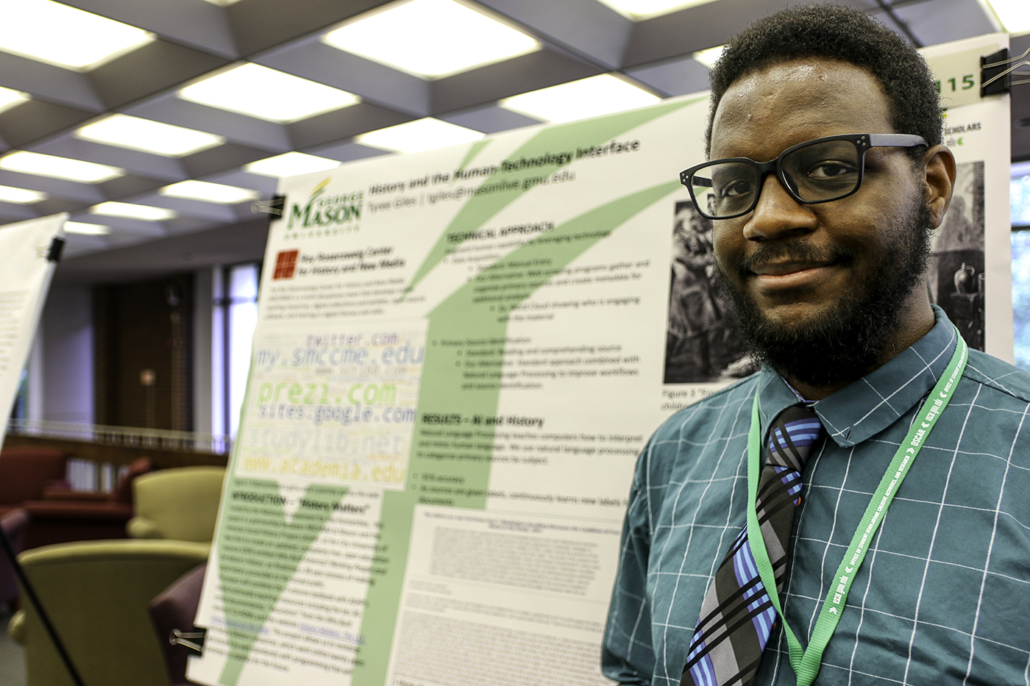
Tyree Giles, senior majoring in mechanical engineering
Giles used natural language processing–teaching computers to read, understand, and write English–to get a computer to document primary source documents in history. “It’s like a Siri or an Alexa for historians,” said Giles.
What OSCAR helped fund: fueling the man hours. “When you’re training neural networks, you have to give it information, give it data. It’s kind of like teaching a child.” said Giles. “You have to show it what an item is first, and build massive amounts of data.”
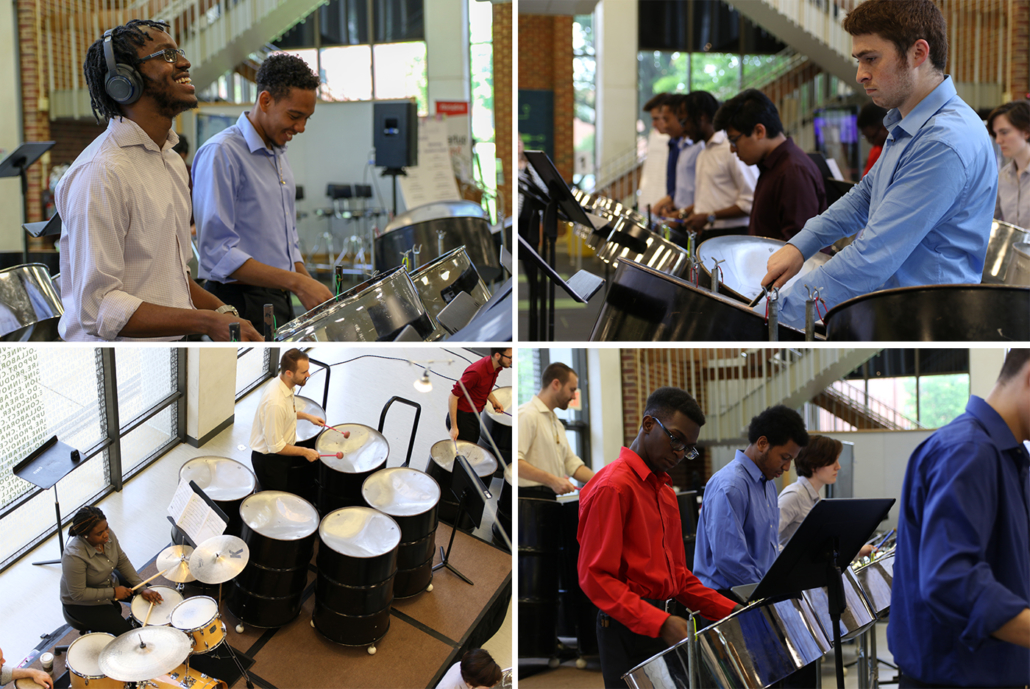
Steel Pan Ensemble
Mason’s Steel Pan Ensemble was invited to perform songs between research presentation groups. Two of the songs were composed by students including “Something Else” by Domenic Lewis, and “Fix Up” by David Singhaus.
What OSCAR helped fund: travel money for ensemble members to attend the International Panorama Competition in Trinidad.
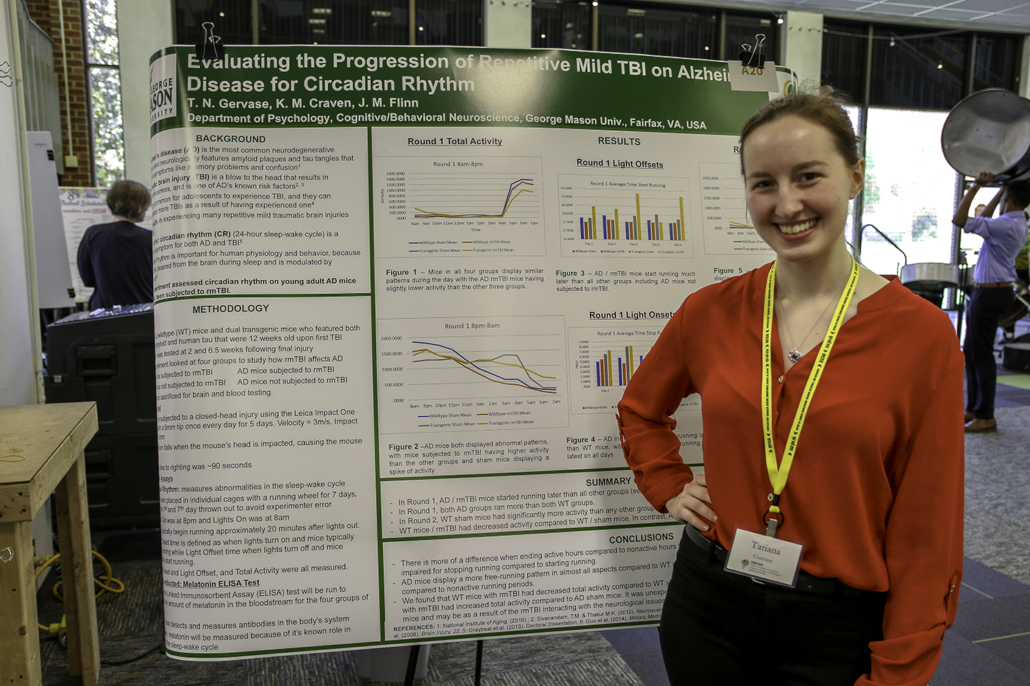
Tatiana Gervase, junior majoring in psychology
Gervase studied how the progression of repetitive mild traumatic brain injury (TBI) affected the circadian rhythm in mice models with Alzheimer’s disease.
What OSCAR helped fund: lab expenditures as well as an ELISA test to measure the amount of melatonin in the different test groups’ blood.
May 24, 2019 / Christopher Bobo


